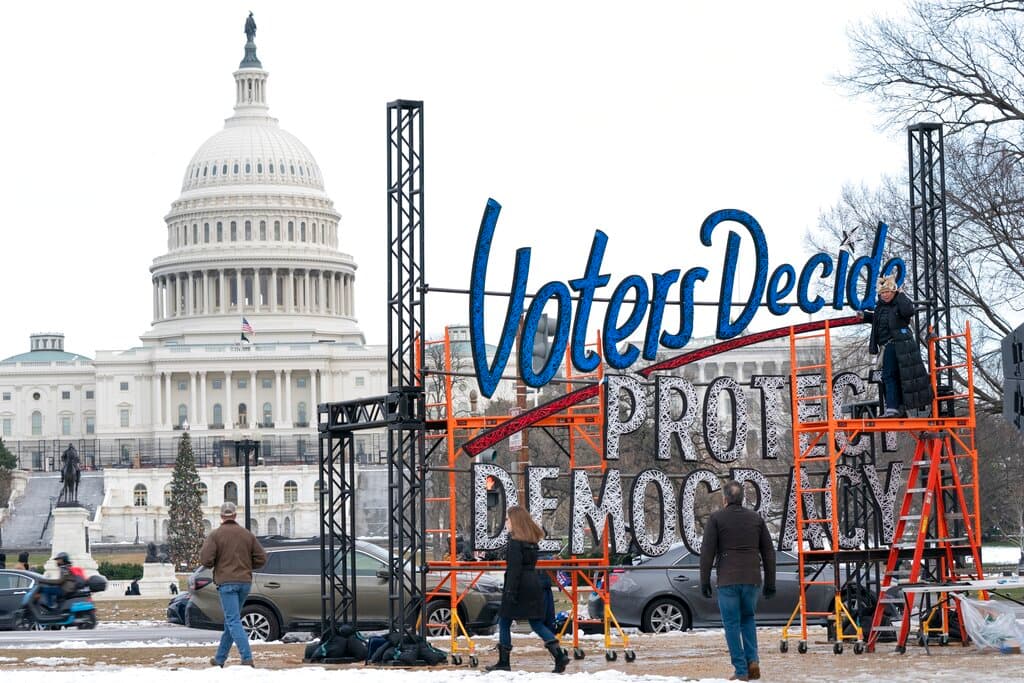Non-Citizen Voting Battle Goes to New York’s Highest Court
Staten Island Borough President Vito Fosella tells the Sun that ‘We anticipated that an appeal was coming.’

Opponents of a New York City law that would allow non-citizen residents of the city to vote in municipal elections are vowing to fight against the law as advocates for the measure appeal an earlier court decision that found the law unconstitutional.
The Staten Island borough president, Vito Fosella, tells the Sun that “We anticipated that an appeal was coming. So, we will be ready to defend common sense and the law.”
“City Council simply does not have the authority to grant non-citizens the right to vote in local elections,” Mr. Fosella tells the Sun. “To grant non-citizens this right, at any rate, would be to the unjust expense of the franchise of actual citizens.”
Mr. Fosella’s comments come in reaction to an appeal filed yesterday by the New York City Council, an appeal which will bring the case before the state’s highest court, the Court of Appeals.
A spokesman for the council, Rendy Desamours, said in a statement that the council, after reviewing the state constitution, election law, and municipal home rule law, believes the law is constitutional.
“Empowering New Yorkers to participate in our local democratic process can only strengthen New York City by increasing civic engagement,” Mr. Desamours said in a statement.
The City Council’s assessment of the law’s compliance with New York State law also runs against the ruling of the Appellate Division for the Second Judicial Department, which found last month that the City Council did not have the power to allow for non-citizen voting in municipal elections.
“We determine that this local law was enacted in violation of the New York State Constitution and Municipal Home Rule Law, and thus, must be declared null and void,” Judge Paul Wooten wrote in the ruling.
The law, if allowed to go into effect, would allow some 800,000 permanent non-citizen residents of New York City to vote for municipal elections like mayor and city council.
Proponents of the measure, like City Council Speaker Adrienne Adams, have said that the law would give New York City’s large immigrant population a voice in their local government. Opponents of the bill, like Mr. Fosella, have insisted that the measure would instead dilute the voting power of native-born citizens in local elections.
The law, which was originally supposed to go into effect in early 2022, drew opposition from New York City Republicans like Mr. Fosella and Congresswoman Nicole Malliotakis.
“There is nothing more important than preserving the integrity of our election system and this unconstitutional law that has been struck down in two consecutive wins only diminished the voices of our citizenry,” Ms. Malliotakis said in a statement.
While non-citizen residents of America are barred from voting in federal elections nationwide, there are other cities around the country that allow non-citizen residents of those cities to vote in local elections.
At San Francisco, for example, non-citizen residents are allowed to vote in school board elections if they are the parent or legal guardian of a child living in the city’s school district. In Maryland, there are 11 municipalities that allow non-citizen residents to vote in local elections.

